The futurist argues that advances in AI and medicine will offer us unprecedented freedom.



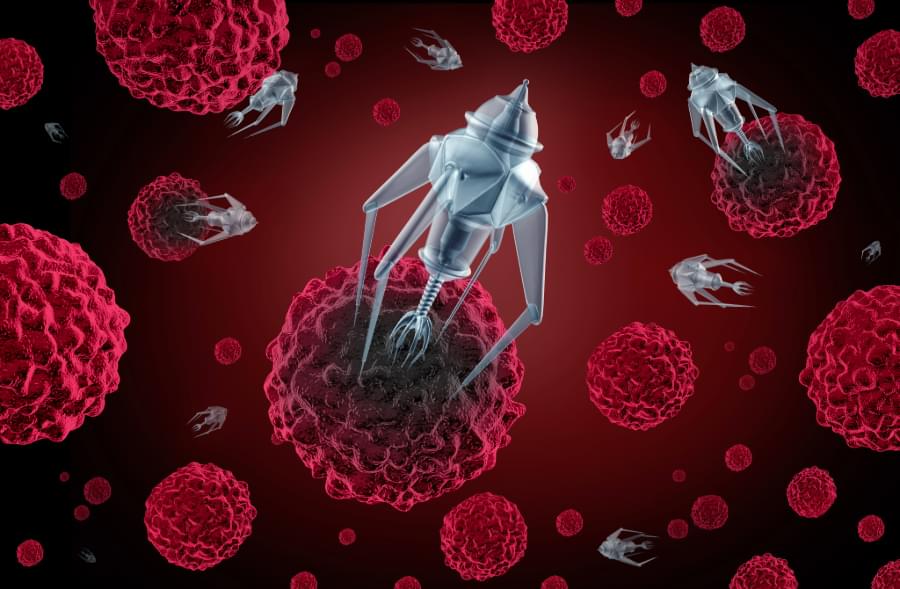
Nanobots are tiny, ~50–100 nm wide robots that perform a single, highly specialized task. They work incredibly well for administering drugs. Drugs typically act throughout the body before entering the diseased area. The medication can be precisely targeted with nanotechnology, increasing its effectiveness and lowering the possibility of negative side effects. Special sensor nanobots can be inserted into the blood under the skin where microchips, coated with human molecules and designed to emit an electrical impulse signal, monitor the sugar level in the blood.
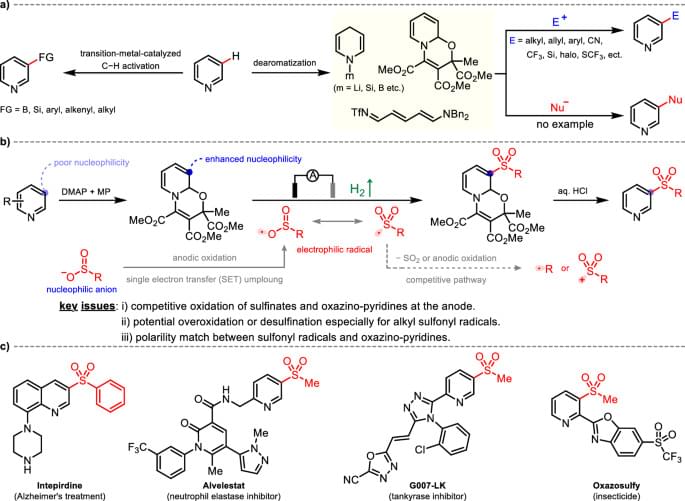
Direct meta-selective C–H functionalization of pyridines is of paramount importance, but such reactions remain limited and highly challenging. Here, the authors report an electrochemical methodology in which nucleophilic sulfinates allow meta-sulfonylation of pyridines through a redox-neutral dearomatization-rearomatization strategy.
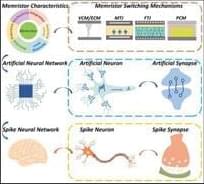
In recent years, there have been many reviews investigating neuromorphic computing from the perspectives of device electrical properties,[ 9, 10 ] resistive switching materials,[ 11, 12 ] memristive synapses and neurons,[ 13 ] algorithm optimization,[ 14 ] and circuit design.[ 15 ] Different from the existing literature, we discuss the possibility of achieving brain-like computing from the perspective of memristor technology and review the establishment of spiking neural network neuromorphic computing systems. In this article, we first review the resistive switching mechanisms of different types of memristors and focus on factors, which affect device stability and the corresponding optimization measures that have been applied. Furthermore, we study the stochasticity, power consumption, switching speed, retention, endurance, and other properties of memristors, which are the basis for neuromorphic computing implementations. We then review various memristor-based neural networks and the building of spike neural network neuromorphic computing systems. Finally, we shed light upon the major challenges and offer our perspectives and opinions for memristor-based brain-like computing systems.
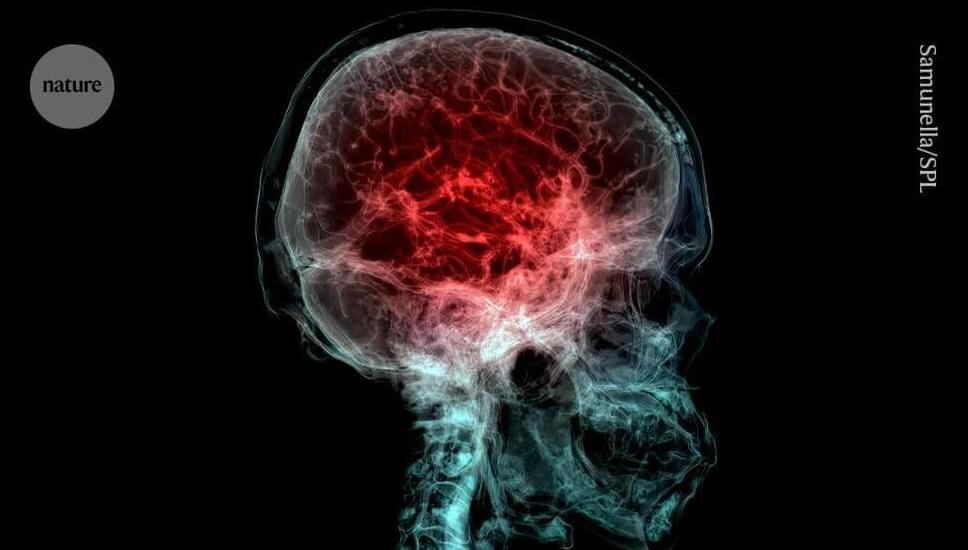
In the more than six million years since people and chimpanzees split from their common ancestor, human brains have rapidly amassed tissue that helps decision-making and self-control.
The large prefrontal cortex provides evolutionary and cognitive advantages over non-human primates — but there’s a cost.
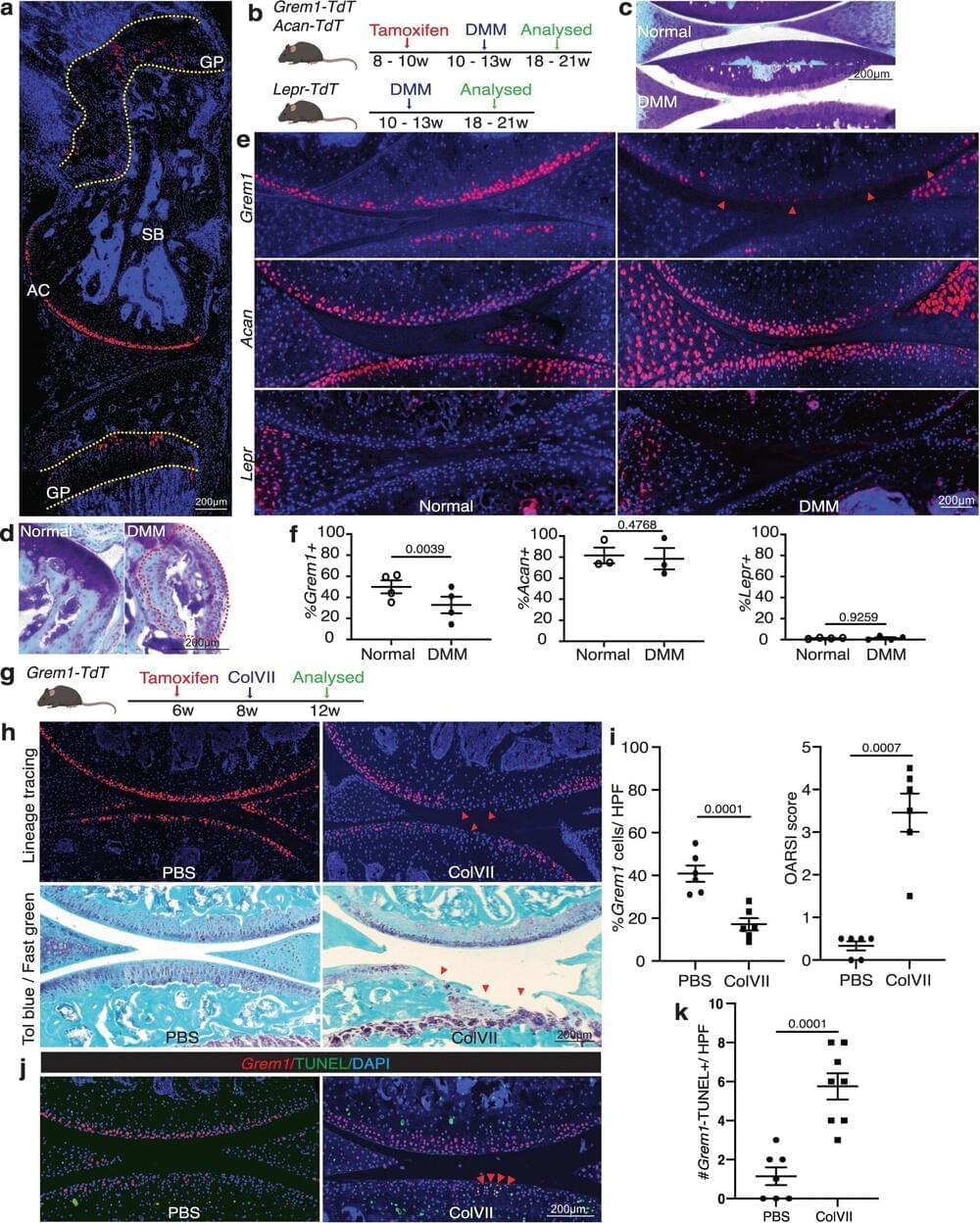
Year 2023 face_with_colon_three
Current osteoarthritis treatment manages symptoms rather than addressing the underlying disease, but a new University of Adelaide study has shown the condition may be treatable and reversible. The research is published in the journal Nature Communications.
Osteoarthritis is the degeneration of cartilage and other tissues in joints and is the most common form of arthritis in Australia, with one in five people over the age of 45 having the condition.
It is a long-term and progressive condition which affects people’s mobility and has historically had no cure. Its treatment cost the Australian health system an estimated $3.9 billion in 2019–20.


A new study published in The Astrophysical Journal, led by Assistant Professor of Astronomy Rana Ezzeddine and UF alumnus Jeremy Kowkabany, with collaborators, reports the discovery of a star that challenges astronomers’ understanding of star evolution and formation of chemical elements, and could suggest a new stage in their growth cycle.
It is widely accepted that as stars burn, they lose lighter elements like lithium in exchange for heavier elements like carbon and oxygen, but an analysis of this new star revealed that not only was its lithium content high for its age, but was higher than the normal level for any star at any age.
This star, named J0524-0336 based on its coordinates in space, was discovered recently by Ezzeddine as part of a different study that used surveying to look for older stars in the Milky Way. It is an evolved star, meaning that it is in the later stages of its “life” and is beginning to grow unstable. That also means that it is much larger and brighter than most other stars of its type, estimated to be about 30 times the size of the sun.

One-minute, short bursts of high-intensity interval training for 19 minutes may be more effective for improving fitness among people six months or more after a stroke than traditional, 20–30 minutes of moderate-intensity exercise sessions, according to research published today in the journal Stroke.
“This study shows that people with stroke can also benefit from high-intensity interval training,” said Kevin Moncion, Ph.D., a physiotherapist who led this study as part of his doctoral studies at McMaster University in Hamilton, Ontario, Canada. “With the right support and guidance, stroke survivors can safely and effectively engage in high-intensity interval training, significantly improving their overall health and recovery.”
The multi-site trial took place between September 2018 and March 2024 and included stroke survivors between six months to 5 years after a stroke. Researchers randomly grouped participants to receive either three days per week of 12 weeks of high-intensity interval training or three days per week of 12 weeks of traditional moderate exercise sessions. The high-intensity interval training protocol involved ten 1-minute intervals of high-intensity exercise, interspersed with nine 1-minute low-intensity intervals, for 19 minutes total. The moderate intensity continuous training involved 20 to 30 minutes of steady exercise at moderate intensity.